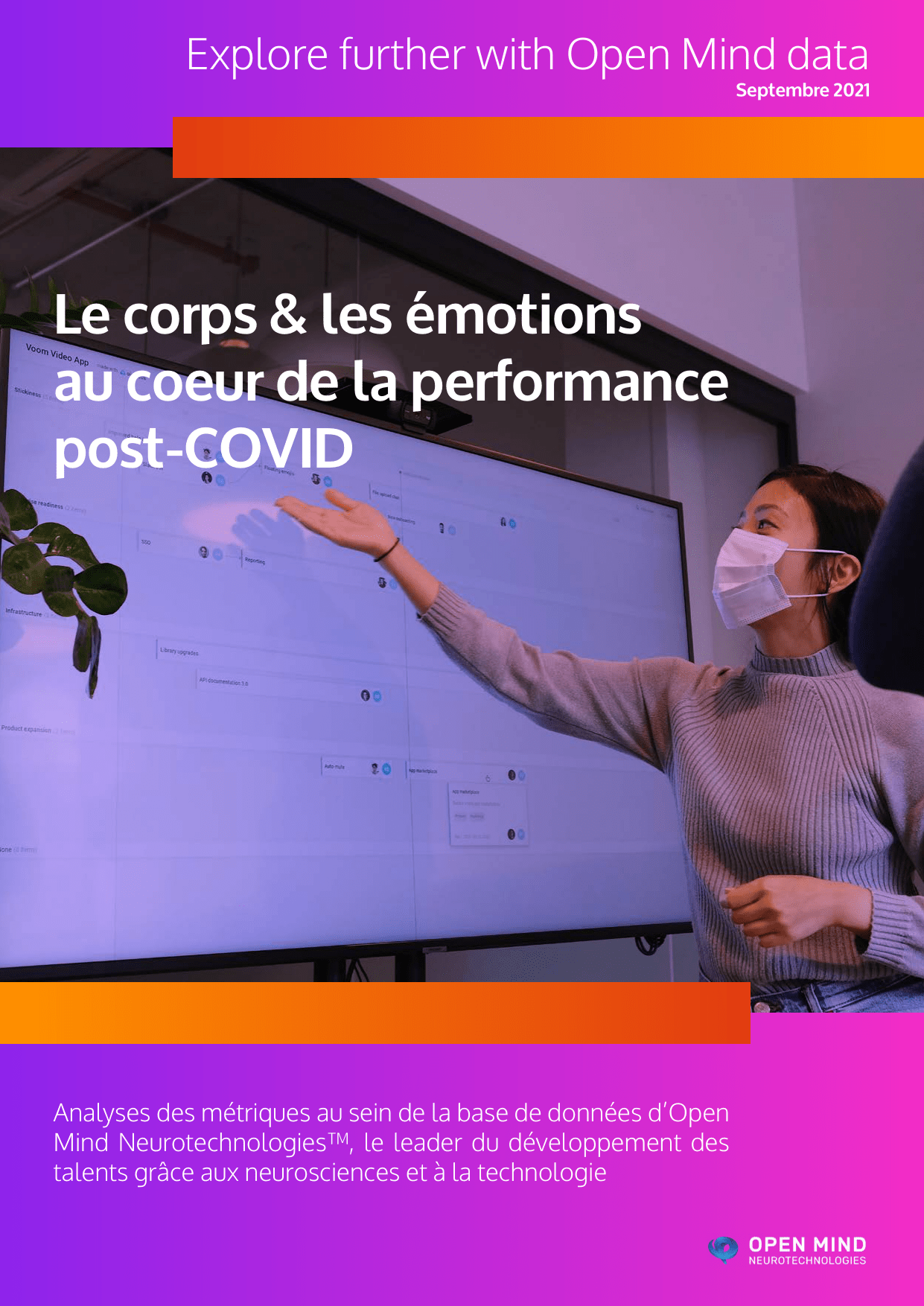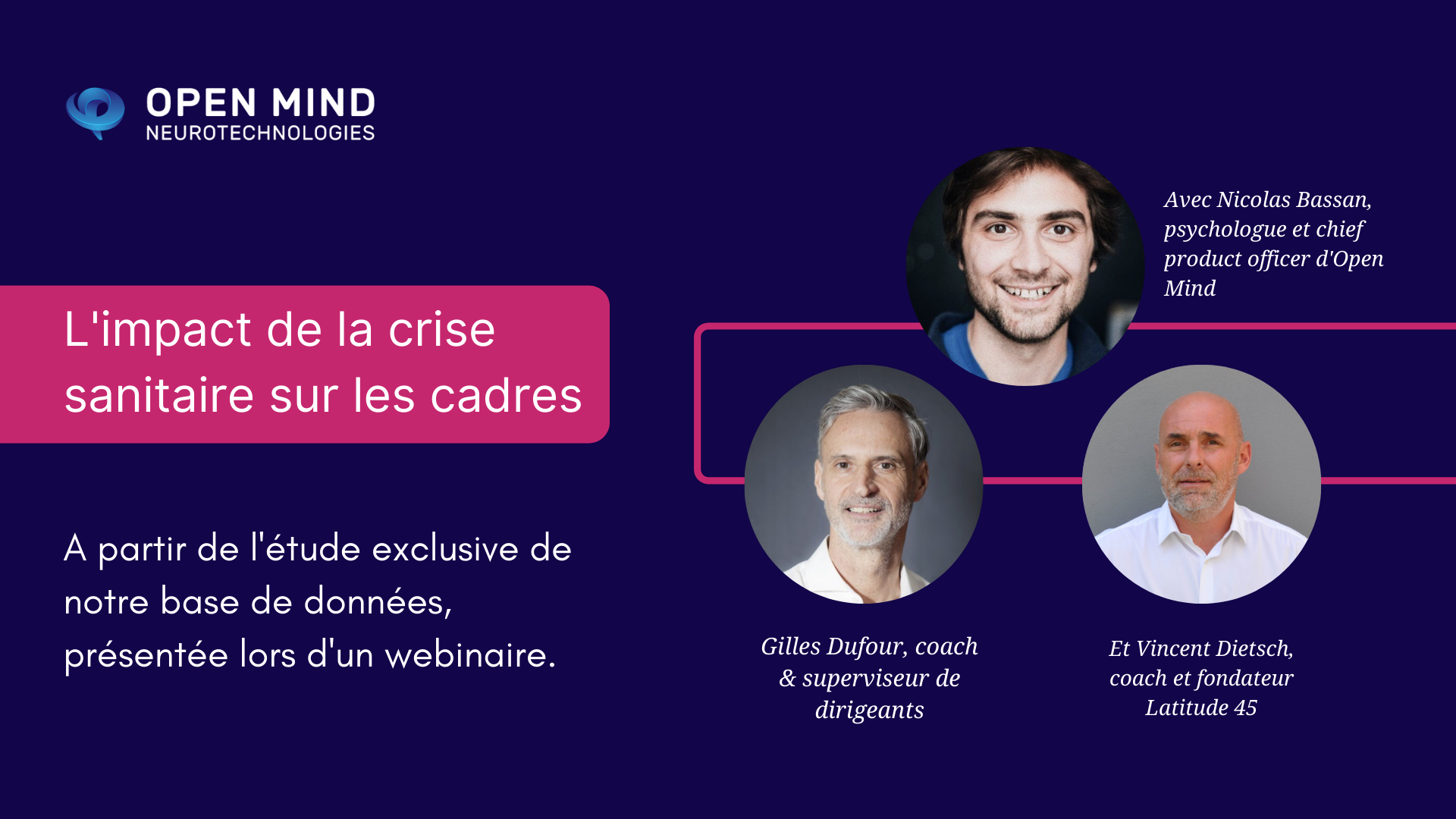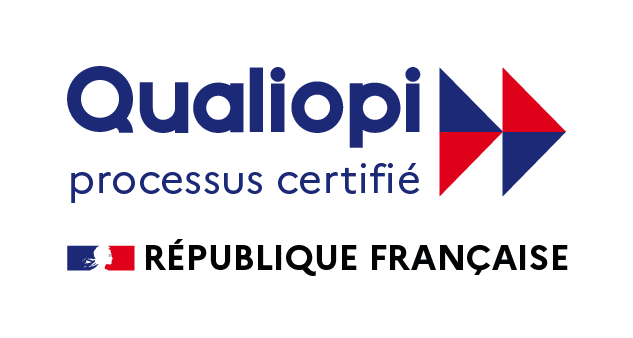The health crisis has weakened the well-being and mental health of executives. To better understand the consequences, Open Mind Neurotechnologies has carried out a impact study from its deep database, comparing data from 200 individuals collected during coaching sessions before and after March 2020. Discover the results presented for the first time in September 2021 during a webinar.
Consequences for executives' mental health and performance
The results of our impact study confirm that the health crisis has had significant effects on executives’ mental health and performance. These include poorer stress management, with emotional reactivity up 7 points and emotional regulation down 5 points. There is a significant discrepancy between objective data and subjective or felt data: executives manage their stress and emotions less well, even though they think they manage them better. This situation can lead to exhaustion and burn-out.
Vincent Dietsch, founder of latitude45 and executive coach, confirms:
"Over the past few months, we've been seeing many more requests for support from people who are overheated, stressed or lacking in energy. This is particularly true of companies that implemented widespread telecommuting very early on. What's really new, however, is that we're seeing requests for support from management teams, not in relation to business issues, but to work on energy, stress management, psychological safety or the quality of social ties".
Reduced innovation skills
Another impact of the health crisis demonstrated by our impact study is a reduction in innovation skills, with 9 points less creativity, 7 points less mental flexibility, 6 points less curiosity and 8 points less novelty production. Stress also has a direct impact on innovation: depending on their ability to manage stress, individuals are more or less creative and have a greater or lesser appetite for novelty.
Gilles Dufour, Founding President of Be&Lead and leadership coach, explains:
"The very first thing for innovation is trust. And today, trust is much less present; it needs to be re-established. There is also a very strong double injunction on leaders: to be creative, but also to produce results, quickly. This adds to the tension that undermines leaders' ability to self-manage their emotions.
The impact of the health crisis on our relationship with ourselves
The third, and particularly significant, consequence of the health crisis is a poorer relationship with oneself. Covid has led to a 7-point drop in self-compassion, an essential skill for resilience. What’s more, executives find it harder to perceive meaning in their lives, a dimension down 8 points. Stress also plays a role here: people who manage stress less well have a greater sense of social isolation (reaction to an unpleasant emotion).
Will these effects last?
Nicolas Bassan, psychologist, co-founder of Open Mind Neurotechnologies and Chief Product Officer, states:
"While the situation should continue to evolve as we emerge from the crisis, it is clear that some underlying trends will persist. Stress management and regulation skills, for example, are likely to improve, but it will be difficult to return to pre-Covid levels without concrete action. And the recovery will probably be slower than the decline observed in the absence of organizational restructuring".
How can we meet these challenges?
To minimize these impacts, there is a range of solutions available to companies, from the most immediate such as back-to-work procedures, dialogue with trade unions and the setting up of hotlines, to longer-term solutions such as new leadership guidelines. new leadership guidelinestalent development 4.0, for example, based on data and technology, and coaching programs. Biofeedback, in particular, can help people to better perceive and regulate themselves.
Support for managerial development is also essential, to ensure that the well-being of each individual is taken into account, and to work on team functioning to boost performance. Today, these elements must be part of the corporate culture.
Did you know?
The practice of mindfulness can reduce mental wandering by 30%, promoting creativity, innovation and internal alignment.
Discover our post-COVID impact studyon executive performance and mental health.


